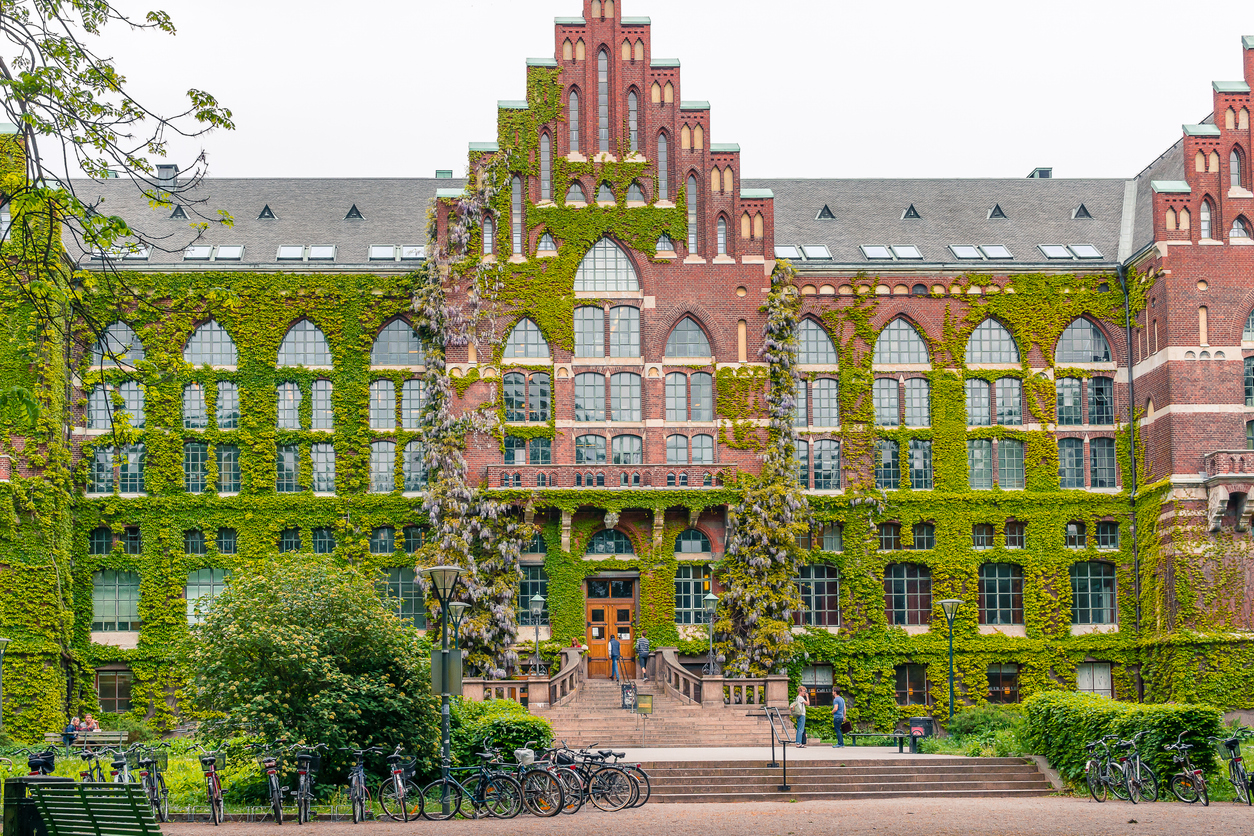Applying to study in Finland: a comprehensive guide
With stunning landscapes and a strong university focus on sustainability, Finland is the perfect destination for students interested in ecofriendly living

Finland offers a unique, high-quality education experience, with a strong focus on innovation, research and sustainability. Its tuition is affordable, compared with many other Western countries. And its welcoming environment and growing reputation make it an excellent option for students seeking a distinctive academic path.
Why Finland?
Finland’s educational system consistently ranks among the best globally, offering a progressive learning approach that emphasises critical thinking, collaboration and practical skills. Its universities are particularly known for strengths in fields like technology, environmental sciences and business.
Moreover, Finland has a high quality of life, with vibrant cities, stunning natural landscapes and a strong emphasis on sustainability – a perfect environment for students who enjoy outdoor activities and ecofriendly living.
Choosing Finland as a study destination will give students access to a world-class education, a high standard of living and the opportunity to experience a unique culture. With its balanced mix of nature, innovation and vibrant student life, Finland could be an excellent place for academic and personal growth.
Types of universities in Finland
There are two types of higher-education institution in Finland:
Universities: research-focused, offering bachelor’s, master’s, and PhD programmes
Universities of Applied Sciences: more practice-oriented, focused on professional skills and workforce development
For a unique and research-driven experience, universities such as the University of Helsinki and Aalto University are great choices. If your student is leaning more toward practical skills, Tampere University of Applied Sciences might suit their interests.
How to apply to university in Finland
1. Research courses and universities
Finland’s official higher-education portal, Studyinfo.fi, is the go-to resource for exploring various programmes. It provides detailed descriptions of each university’s courses, entry requirements and tuition fees.
2. Check eligibility requirements
Most programmes will require the following:
High-school diploma or undergraduate degree: depending on whether students are applying for a bachelor’s or master’s degree.
English-proficiency test: if the programme is taught in English, students will need to submit an IELTS or TOEFL score (IELTS: minimum 6.5; TOEFL: minimum 92).
Standardised-test scores: some business or technical programmes ask for GMAT, GRE or SAT scores.
3. When to apply
Finland has two main application periods:
Autumn intake: applications usually open in January and close in April, with courses starting in August or September.
Spring intake: for some programmes, applications open in September and close in November, with studies beginning in January.
I’d recommend that students plan for the autumn intake, as most programmes are available then, and it gives them more time to prepare.
4. Submitting an application
Once students have settled on a programme, they need to do the following:
- Register on Studyinfo.fi.
- Fill out the application form. They will need to include personal details, academic history and their programme preferences. Upload all required documents, such as diplomas, transcripts and proof of English proficiency.
- Submit the application. Be mindful of deadlines.
- Application fee: some universities may charge a small application fee, typically €50-100.
Applying for a student visa and residence permit
Non-EU/EEA citizens will need a student-residence permit for programmes longer than 90 days.
Required documents for residence permit:
- Letter of admission from a recognised Finnish university
- Proof of financial means: students need to show that they have about €7,560 to cover living expenses for one year
- Health insurance: this is mandatory, and the coverage must be at least €40,000 for students staying for less than two years
- Passport: valid for the entire duration of their course
- Application fee: around €350 for online applications
Students can apply through Enter Finland, Finland’s online portal for visa and residence permits.
Tuition fees and scholarships
1. Tuition costs
For international students outside the EU/EEA, tuition fees in Finland generally range between €6,000 and €18,000 per year, depending on the university and the programme.
2. Cost of living in Finland
While Finland’s cost of living is relatively high compared with some countries, it’s still manageable with proper planning. Here’s an approximate monthly budget:
Accommodation: €300 to €800, depending on the city
Food: €150 to €300
Transportation: public-transport passes cost around €30 to €50
Tampere and Turku are more affordable than Helsinki, so students may want to consider universities in these cities if budget is a key factor.
3. Scholarship opportunities
To help with the cost, universities such as Aalto University and University of Helsinki offer merit-based scholarships, covering up to 100 per cent of tuition fees. Most are awarded based on academic performance.
Students should apply for scholarships alongside their main university application.
4. Other funding options
There are additional options, such as Erasmus+ for part-time study abroad or research exchanges within Europe, which can help cover some of students’ costs.
5. Working while studying
Finland allows international students to work up to 25 hours per week during the academic term, and full-time during holidays. It’s a great opportunity for students to gain work experience while supporting themselves financially.
Tips for getting started
Language: while students will most likely be studying in English, learning a bit of Finnish will enhance their experience, especially if they plan to work there during or after their studies.
Student life: Finnish universities have active student organisations and societies. These are a great way to meet new people and integrate into the community.
After graduation
If students want to stay in Finland after completing their studies, they can apply for an extended residence permit to search for work. This permit allows them to stay in the country for up to one year while job-hunting. Once they find employment, they can then apply for a work-based residence permit, which could eventually lead to permanent residency.


